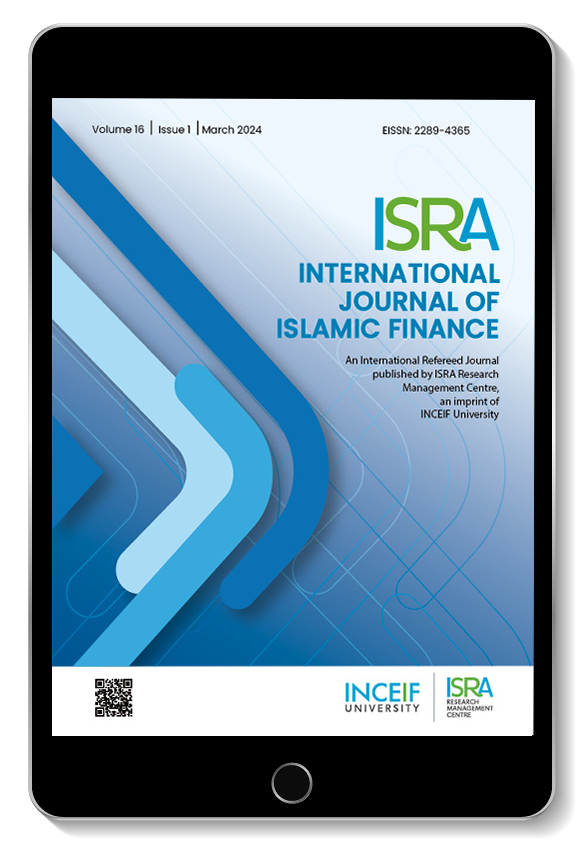发展伊斯兰遗产规划的最佳实践:基于个人和遗产规划提供者视角的构建
IF 1.4
Q2 BUSINESS, FINANCE
引用次数: 7
摘要
目的本文旨在为穆斯林开发伊斯兰遗产规划的最佳实践。伊斯兰遗产规划是通过现有的伊斯兰遗产规划工具,例如farāḍ (继承)ṣiyyah(遗嘱)、hibah(礼物)和waqf(捐赠)。设计/方法论/方法本文采用访谈法获得有关伊斯兰遗产规划最佳实践的信息。对马来西亚半岛北部地区的受访者和房地产规划提供者进行了半结构化访谈。使用主题分析对收集的数据进行了分析,该分析涉及五个阶段,以构建伊斯兰遗产规划的最佳实践。发现本文确定了伊斯兰遗产规划中的重要元素。这些要素被概述为穆斯林应该做的至关重要的事情,以计划代际转移并在未来获得良好的份额。研究局限性/含义本文的第一个局限性是,最佳实践是基于定性方法制定的。没有证据表明其有效性,这是一个可以在未来探索的空白。其次,它涉及两类受访者(个人和伊斯兰遗产规划提供者)的看法,在未来的研究中,这一看法可能会扩大到监管机构等其他相关利益相关者。独创性/价值本文提出了伊斯兰遗产规划的最佳实践框架,这是第一批这样做的研究之一,它不仅对马来西亚穆斯林有用和相关,对其他国家的穆斯林也有用和相关。本文章由计算机程序翻译,如有差异,请以英文原文为准。
Developing best practices of Islamic estate planning: a construction based on the perspectives of individuals and estate planning providers
Purpose
This paper aims to develop the best practices of Islamic estate planning for Muslims. Islamic estate planning is a fixed proposal for the management and outlook of an individual’s assets throughout their life and upon their passing, created by means of existing Islamic estate planning tools, for instance, farāʾiḍ (inheritance), waṣiyyah (will), hibah (gift) and waqf (endowment).
Design/methodology/approach
The paper used an interview method to obtain information on the best practices of Islamic estate planning. Semi-structured interviews were conducted with the respondents and estate planning providers in the northern region of Peninsular Malaysia. The data gathered was analysed using thematic analysis which involved five phases to construct the best practices of Islamic estate planning.
Findings
The paper identifies important elements in Islamic estate planning. The elements were outlined as the crucial things that Muslims should do to plan for intergenerational transfer and earning a good share in the hereafter.
Research limitations/implications
The first limitation of the paper is that the best practices were developed based on a qualitative method. There is no evidence of its validity, which is a gap that can be explored in the future. Second, it involves the perceptions of two types of respondents (individuals and Islamic estate planning providers), which may be broadened to other related stakeholders such as regulators, in future studies.
Originality/value
This paper presents a framework of best practices of Islamic estate planning, it being one of the first studies to do so, which is not only useful and relevant for Malaysian Muslims but also for Muslims in other countries.
求助全文
通过发布文献求助,成功后即可免费获取论文全文。
去求助
来源期刊

ISRA International Journal of Islamic Finance
BUSINESS, FINANCE-
CiteScore
3.40
自引率
17.40%
发文量
18
审稿时长
20 weeks
期刊介绍:
It is the aspiration of the editorial committee that IJIF achieves the highest rank in quality and substance. It is thus our aim that the journal be carried in the Thompson Reuters’ ISI and Scopus databases. By ensuring high standards in articles published in Islamic finance we ensure that further innovation and research is carried out and promoted in the Islamic finance industry and academia. IJIF publishes 2 issues per annum.
 求助内容:
求助内容: 应助结果提醒方式:
应助结果提醒方式:


